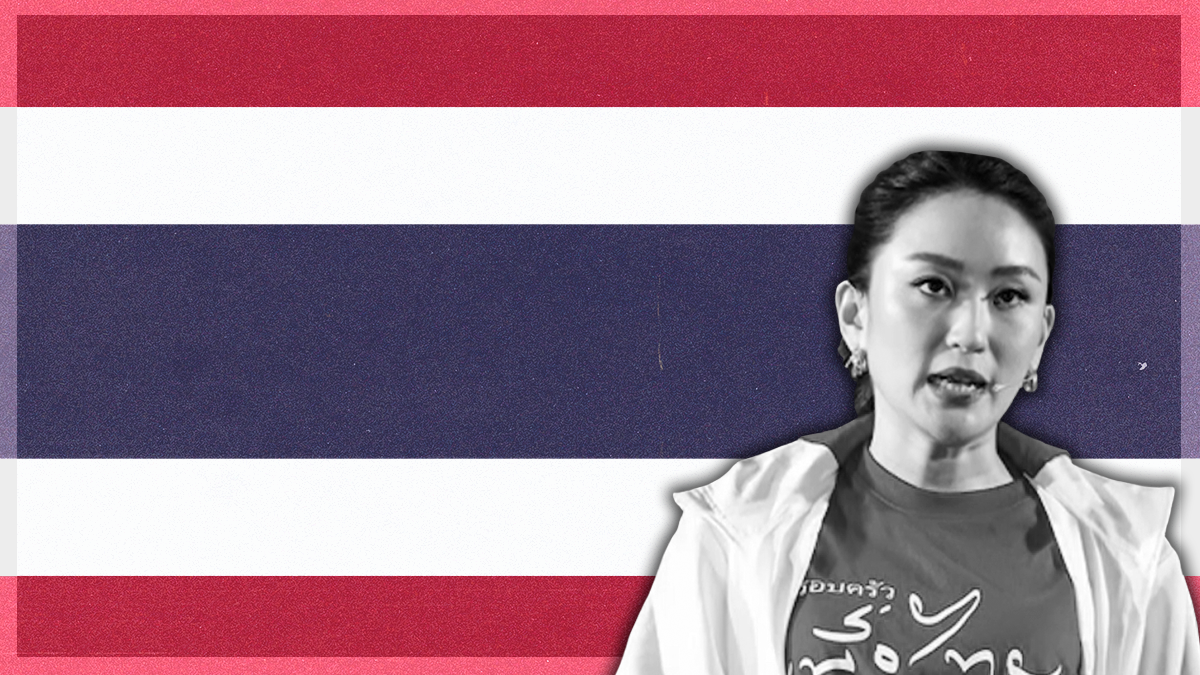Get ready for some major political trouble later this year in the Land of Smiles.
Paetongtarn Shinawatra, the youngest daughter of deposed former Thai PM Thaksin Shinawatra, is mulling a run for her dad’s old job. Over the weekend, Paetongtarn — Thais go by their given name — got a lot of buzz at the assembly of Thaksin’s Pheu Thai Party, calling for a landslide victory in a snap election expected to be called in November.
That would be no surprise, given that Thaksin-backed parties have won every national election in Thailand since 2001. The 35-year-old Paetongtarn, with zero political experience of her own, would be a vessel for her billionaire dad, the most influential name in Thai politics for a generation.
With his daughter as a proxy, Thaksin likely wants two things: to return to politics — pulling the strings in the background — and to return home from self-imposed exile.
Almost 16 years after being overthrown, Thaksin remains popular with a majority of Thai voters, especially the rural poor in the northeast who cherish his big spending on free healthcare, education, and farmer loans.
But he’s never been cozy with the men in uniform, who’ve long questioned Thaksin’s loyalty to the monarchy. The army ousted him in 2006 and his sister Yingluck in 2014 – business as usual in the country with the most coups since World War II.
For more than 20 years, almost every episode of political unrest in Thailand has pitted the pro-Thaksin "red shirts" against the "yellow shirts," backed by the army and supported by the ultra-conservative Bangkok business and political elite. The bloodiest confrontation was in 2010, when the military cracked down hard against "red shirts" in the capital's glitzy shopping district.
So, will the generals step in again if another Shinawatra comes to power? Certainly, according to Titipol Phakdeewanich, a political scientist at Ubon Ratchathani University.
"Paetongtarn’s political future is perceived to be a threat by both the military and the political establishment because they remain preoccupied with Thaksin," Phakdeewanich says. "She has the right to run for office, but her political right is rejected by the military."
The military-backed government will do everything in its power to prevent Thaksin's party from winning a majority and Paetongtarn from becoming PM, says Purawich Watanasukh, a research fellow at the King Prajadhipok Institute. It could seek to disqualify the party, her candidacy, the election result, or remove her in a coup like her father and her aunt.
The bigger question, though, is whether Paetongtarn can get all the votes she needs. Thaksin's party could win the most seats in parliament, as it did in 2019, but fall short of an outright majority.
"We have to wait and see how many, and how many allies [Pheu Thai] will be able to find to take the lead in trying to go for the premiership," says Termsak Chalermpalanupap, a visiting fellow at the ISEAS–Yusof Ishak Institute in Singapore.
What’s more, “the Thai political landscape has changed," says Phakdeewanich. Thaksin's party is still strong, but liberal and pro-democracy voters now have more choices, and the military-drafted constitution allows the generals to handpick a third of the senators who select the PM.
Still, if she runs and wins, Paetongtarn would become the youngest-ever Thai PM at 35. She hopes her youth will appeal to younger voters, including those involved in the 2020-2021 pro-democracy rallies that made history by seeking reforms of the monarchy.
To make a play for the youth vote, Paetongtarn is pushing for tech-oriented solutions to democratic participation and fielding younger MP candidates, says Watanasukh.
Chalermpalanupap, however, is skeptical that Paetongtarn can energize the youth with her name recognition alone: "Thaksin was in power when these young voters were in elementary or secondary school. To most of them, Thaksin is a distant history."
Thaksin return? Fielding his daughter as a proxy is Thaksin's last big chance to return to Thailand, says Chalermpalanupap. The former PM has been living in self-imposed exile in Dubai since 2008, when he was sentenced in absentia to two years in prison for abuse of power.
But to do so, Thaksin would need a pardon from King Maja Vajiralongkorn himself. That's a very long shot, considering that the monarch stripped Thaksin of his royal decorations in 2019 — shortly after the king blocked his own sister from running for prime minister in the last election … under a pro-Thaksin party.
Thailand may officially be a constitutional monarchy, but the king often intervenes in times of crisis — such as potential unrest over Thaksin’s return. His late father, King Bhumibol Adulyadej, famously did so in 1992, when he made the two most powerful men in the country kneel before him and agree to end their political squabbles in order to get his blessing.
What'll Thaksin need to do to get a pardon?






